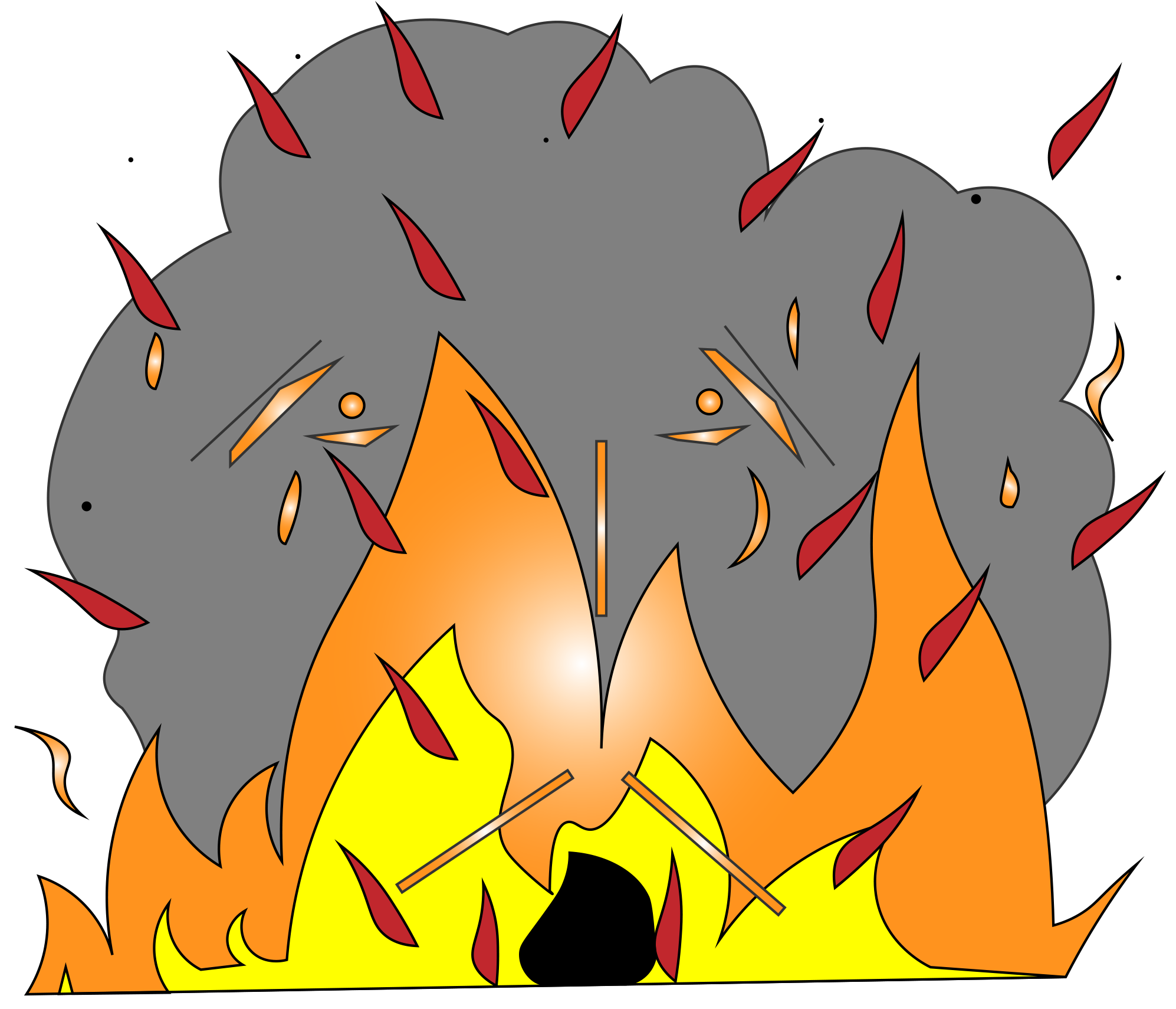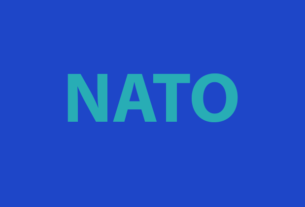Six months ago, before the Crimean referendum and the rebellion in Donetsk and Luhansk regions, I offered a few musings on the Ukrainian events. Keeping in mind that the game is still only in the third inning, today I was curious to look back and see how many of my predictions turned out to be accurate.
“The more patient play for Putin might have been to sit back, turn down the gas supplies, support a pro-Russian insurgency in the East, and hope for the Ukrainian economy to disintegrate and for internal Ukrainian tempers to flare… He could always invade two years later if this strategy didn’t work.”
Well, he kind of did exactly that for a while. But the insurgency never gained a strong footing among the Eastern Ukrainian population and was steadily losing ground to the Ukrainian Army. Which brings us to Phase 2?
“Most likely, Putin’s preferred endgame is not just grabbing Crimea (which was simply easiest to grab, and hence came first), but a full-scale land invasion of Ukraine designed to either unseat the new government entirely or to force it to negotiate a peace favorable to Russia when Ukraine is on the brink of humiliating defeat. At a minimum, this war would probably result in a split Ukraine.”
Not quite there yet. Putin chose Phase 1.5 – a limited low-profile invasion, which was still enough to put Ukraine on the brink of humiliating defeat and produced a truce certain to keep the separatist rebels in control of the territory they have seized so far.
Is this the end of it? A frozen conflict, like Abkhazia or the Trans Dniester Republic? While the rest of Ukraine is allowed to turn the page and move on? I doubt it.
“Putin is not prepared to tolerate a large hostile state, allied with the West, on Russia’s Western border…
*************************************************************************
Russian troops will eventually invade the rest of Ukraine. An all-out assault may be preceded by a guerilla war waged inside Ukraine by pro-Russian militias, with some help from Spetsnaz operatives, to destabilize the country.”
We shall see. Still a few innings left to play. But now my hunch is that a full scale invasion will not be needed to prevent Putin’s nightmare – a large hostile state on Russia’s border. It seems that a lighter touch may still achieve Putin’s objective.
I was wrong in assuming that a Ukraine ruled firmly by a Putin crony is the only way to help Putin sleep better at night. In fact, a middle ground solution exists – other than turning Ukraine into a neutral replica of Finland or Austria (which still makes the most sense but, presumably, is either being resisted by Obama or is not good enough for Putin). This solution is bad news for the Ukrainians but will do just fine for Putin. It’s called controllable chaos.
My mistake was framing Putin’s nightmare as follows:
“Ukraine is likely to become either (1) a corrupt failed state – a nebulous collection of fiefdoms run by oligarchs and their private armies, adrift from both Russia and the West, without a centralized law enforcement system – or (2) a Western protectorate, possibly a member of NATO. Neither outcome can be acceptable to Putin.”
It is still true that option #2 is unacceptable to him. If Ukraine tries joining NATO, a full scale Russian invasion becomes imminent. But, precisely for that reason, this scenario is remote, at least while John McCain (or someone like him) is not calling the shots in Washington.
Putin tested the West when he sent in a few tanks in August, and the West predictably blinked. They called it an “incursion” and stomped their feet, but refused to send arms that Ukraine begged for. Poroshenko was forced to sign a cease-fire and abandon his foolish campaign “to take back our land,” which was doomed from day one without Western military support. (In fairness, domestic Ukrainian politics necessitated a good faith try before throwing in the towel.) The West was wise not to double down against Putin with overt military support for Ukraine, now that he has demonstrated the will to escalate the conflict infinitely regardless of economic cost. Doubling down further would have triggered an even harsher Russian response, and an explicit defeat of the West.
The West was simply opportunistic when flirting with Ukraine. “Let’s see if I can get lucky.” But the West is not ready to marry Ukraine. Ultimately, the West has neither the guts, nor the need, to fight a nuclear war with Russia over Ukraine, which was never the West’s spouse to begin with. This means NATO membership for Ukraine is not forthcoming. The West is happy to use Ukraine as a thorn in Russia’s side, but will not send its own soldiers to die for Ukraine.
But shouldn’t Putin still be concerned about option #1 – Ukraine becoming the new Afghanistan? Maybe not. In fact, maybe he would be happy to settle for that. As discussed in my March essay, a full-blown invasion would be costly and risky. By contrast, sustaining controllable chaos in Ukraine is the safer, low-rent alternative. It can be achieved with only a few boots on the ground, plus primarily economic sticks and carrots. “Still want that cheap gas, Petro?” Here, Putin’s job is made easier by the West’s unwillingness to provide a robust Marshall Plan for a bankrupt Ukrainian economy. It turns out that Russia is the only country willing to spend significant resources on Ukraine.
Perhaps the biggest threat posed to Putin’s regime by the Maidan rebellion was not really further NATO expansion. It was the possibility of Ukraine becoming a successful liberal democracy with a competitive economy – a Poland next door to Russia, where most people speak Russian. Such a Ukraine would present a tempting alternative for the Russian people, just like West Berlin once did for East Germans. It would also deprive Russia of a captive market and a valuable link in its industrial supply chain. Finally, a strong and free Ukraine would be a natural foe for his regime – the stronger, the more formidable, even if not an official NATO member.
Viewed from that perspective, as long as Putin can prevent Ukraine from flourishing, he succeeds in keeping trouble at bay. And this does not require all-out conquest. It merely requires repeatedly kicking Ukraine under the table.
A feeble and war-weary Ukraine may not be able to sustain a stable democracy. Eventually, either a Ukrainian version of General Pinochet will rise, or Ukraine will simply remain a corrupt oligarchy with a weak central government nominally in charge but with real power in the hands of several mafia families. Either way, Putin will find some kindred spirits to cut deals with – people primarily motivated by a lust for power and money (both of which he can help provide or withhold at will), not freedom and justice (neither is part of his vocabulary). Godfathers prefer to deal with other godfathers, instead of idealistic Chicago law professors.
A Ukrainian power-hungry dictator would quickly realize that he cannot survive in power with Putin as his arch-enemy and the West as his mercurial “friend” – driving him to a compromise with Putin and transforming him into the next Lukashenko. As for Ukrainian oligarchs, they can be bought. The money that Putin was planning to spend on propping up Yanukovych could instead be spent on paying off Kolomoysky. Russia also has tons of economic leverage over the Ukrainian oligarchs, even putting aside the fact that most of them own significant Russian assets. Many of their businesses are still part of a Russia-oriented supply chain, and may be unable to compete fairly with Western companies in a truly free market.
Bottom line: as long as Putin does not have to speak to a strong, democratically elected and popular Ukrainian government, he will manage to retain enough Russian influence in Ukraine to prevent a serious threat to his tenure in the Kremlin. He can find a common language with the new generation of tyrants who would end up in control of Ukraine, at least in some of its key regions. By spending a few bucks wisely, he may influence which tyrants end up in charge. And as Ukrainians grow tired of Kiev’s ham-fisted and cash-starved government, which sends its young men into battle in school buses, the prospects for Ukrainian democracy grow bleaker.
So, if you are Ukrainian, the good news is that you might not see a Russian tank on your street in the near future. But the bad news is this: get ready for more hard kicks under the table. And those kicks will hurt a lot. Because Putin will not let Kiev become the next Warsaw any time soon. This crisis is far from over.





The most clearheaded analysis of the Ukrainian conflict that I have read. Since last fall, the region has been a slow simmer. Do you think that it will stay that way or will the “rebels” move to expend their territories, possibly move to create a land bridge to Crimea? Does Russia need a land bridge to Crimea?
To me it appears that the West is being strategically outflanked by it’s three main antagonists: Iran and Russia in the middle east; China in Asia. What do you think?
Russia can live without a land bridge to Crimea, and does not need to take ownership of more Ukrainian land. What Russia needs is a neutral Ukraine. Until that compromise is reached, the conflict will continue to simmer.
As long as the conflict keeps Ukraine weak, I think Russia will be satisfied with the status quo as an interim solution. But if Ukraine starts getting stronger, Putin will feel compelled to unleash the endgame. And his endgame is in Kiev — either via outright conquest, or a humiliating negotiated settlement after Mariupol, Kharkiv and maybe Odessa have fallen to the rebels.
As for the West being outflanked, the West has nobody but itself to blame. In 2007 in Munich, Putin offered himself to be the West’s lackey in an alliance against China. All he wanted was a joint seat at the table, deciding the fates of the world collectively with the West and being treated as a partner. The West arrogantly turned him down, figuring they could force regime change and capitulation in Moscow without giving Russia any vote at the big table. Just like 1991. As Lavrov aptly put it, “They tried to take us with a bluff.” Epic fail.
The West overestimated its fading powers, and now faces a resurgent and hostile Russia. Was an attempt to capture Ukraine really worth it? They are now realizing their error and trying to walk it back gracefully, but at this point an alliance between Russia and China may be a fait accompli. The Russian people will never trust the West again.